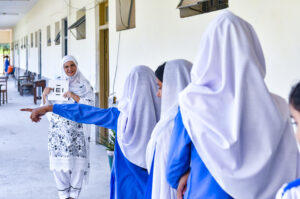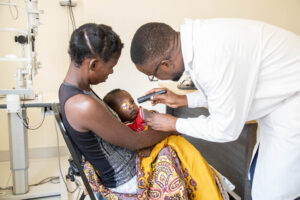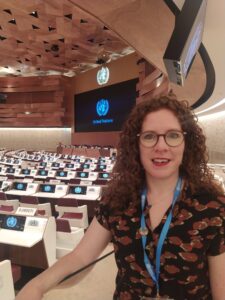World Sight Day: Time for Action on Eye Health

Eye health is universal. Everyone will require eye care services at some point in their life – when did you last have an eye test, or a new glasses prescription?
We know that more than half of people who have a visual impairment around the world – 1.1 billion of the 2 billion people – have a condition that could have been prevented or is yet to be treated because they do not have access to the essential health services they need.
But eye care services are inaccessible for many people. The burden of blindness sits disproportionally in low and middle income countries – with more than 90% of those who are blind based there. Traditionally eye health services have been provided by private providers, outside of the national health system. While this means there are services available, they require people to be able to pay for the services and treatment, and are often based in cities. This is why Sightsavers advocates for the inclusion of eye health services as an essential part of primary health care. Universal health coverage (UHC) cannot be achieved unless all people have affordable access to the eye care they need.
We have seen the recognition that eye health is critical to UHC and to achieving the SDGs with the UNGA resolution Vision for Everyone and the 2023 Political Declaration on UHC. What we need now is action on these high level commitments, to ensure that they are translated into improving access to eye care for billions of people around the world.

The need for eye health services is projected to increase with over half of the world’s population expected to be short sighted by 2050. Solutions are simple and cost effective – glasses cost just £2 to £4 on average, and can treat 161 million of those with a vision impairment. A cataract surgery can treat another 100 million. We know the impacts are wide ranging, improving educational attainment, tackling gender equity, addressing poverty, accessing employment and more.
The WHO has provided a wealth of tools for countries to implement the recommendations of its 2019 World Report on Vision and include eye health in their UHC planning, resourcing and funding. At Sightsavers we work with national governments to develop eye health policies as well as include eye care in national health policies and plans.
In order to reach those 1.1 billion people whose vision can be improved, we need eye health services to be included in national health systems, we need these services close to where people live, and for them to be accessible and affordable. We also need health promotion materials so that people are aware of the services, we need rehabilitation services for those whose vision impairment cannot be treated, and all of this cannot be achieved with eye health in a silo. We need eye health to be a part of UHC.

This article was written by Fiona Lawless, Health Policy Adviser at Sightsavers.
Sightsavers is an international organisation working with governments and partners in more than 30 low and middle income countries across Africa and Asia to: tackle avoidable blindness and vision impairment, including cataract and refractive errors such as short-sightedness; treat and eliminate neglected tropical diseases, and; create a more equal world where people with disabilities can access health care, education and employment without discrimination.
